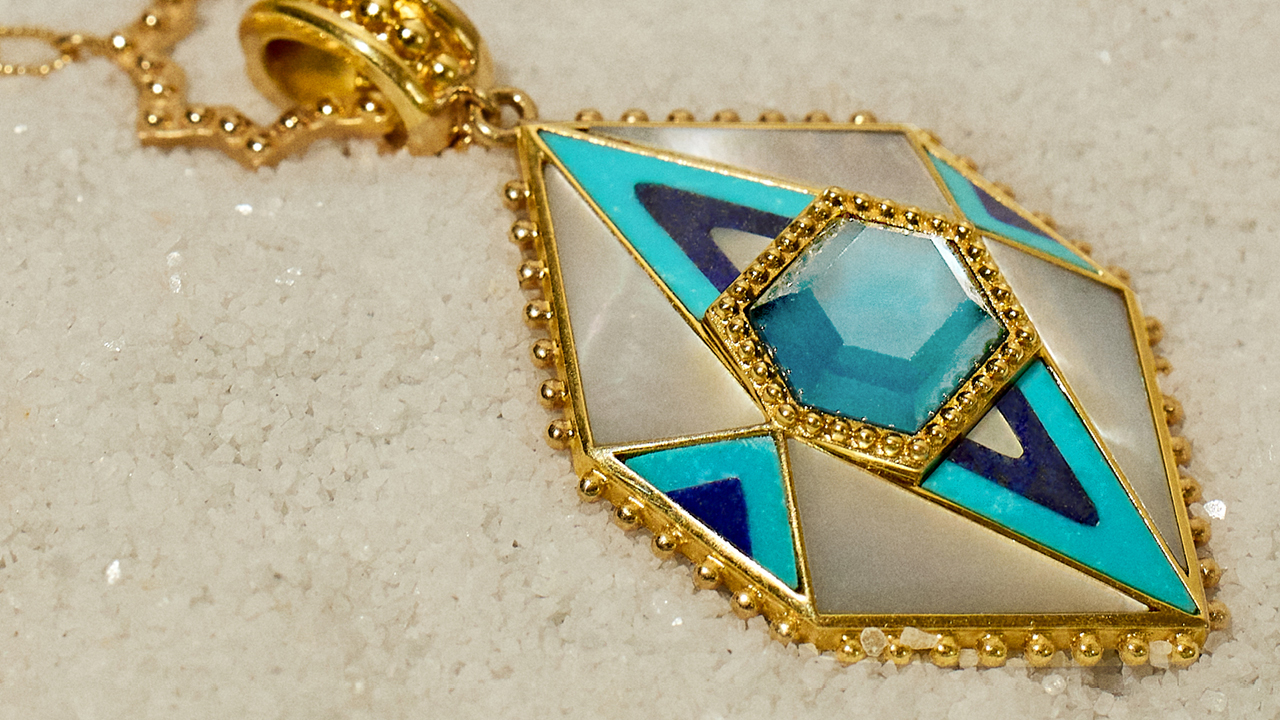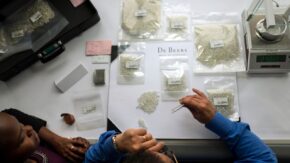Three jewelers share how they ensure their brands stay ethical and make a difference to society.
Orly Eisbart, Orly Marcel
Orly Eisbart, the Israeli-born jewelry designer who runs the Orly Marcel brand out of Denver, Colorado, doesn’t talk much about ethics. Her website mentions charitable donations and the spirituality that underpins her designs, but little else. That, however, does not mean she’s not engaged.
“We actually don’t market our [corporate social responsibility (CSR)] and sustainability practices,” says Eisbart. “We believe all jewelry should take CSR seriously, and for us, this is a baseline.”
When considering how best to produce her jewels, Eisbart traveled the world to visit more than 50 potential manufacturing partners. “The biggest test is the eye test — taking the time to go to visit your partners in person, see their conditions, meet their employees, and actually see how things are done,” she says.
This research trip led her to forge alliances with an “eclectic group of partners from all around the world.” Many of those are in Asia, an area that she says often unfairly gets a bad reputation. “In our experience, our partners [in Asia] run strong CSR operations with sterile, clean and organized environments,” says Eisbart, whose main partner there is a female-owned and -operated business that’s a long-standing member of the Responsible Jewellery Council (RJC). “In fact, we have chosen not to work with many US manufacturers, as their standards fail to meet our expectations.”
Eisbart is not afraid to ask the tough questions, and she holds steadfast to her standards in negotiations. “Our goal is to continue to lead by example and continue to be as transparent as possible,” she says. “The more designers continue to expect from our suppliers and the greater industry, the more [having strong CSR] will become an industry requirement and less an exception.”

The biggest test is the eye test — taking the time to go to visit your partners in person, see their conditions, meet their employees
Orly Eisbart
Ashley Zhang, Ashley Zhang Jewelry
Ashley Zhang, the designer behind the eponymous New York fine-jewelry brand, loves vintage. Her collections take their inspiration from antique jewels, and she works with recycled materials and repurposed gems. But as much as she adores the good old days, she’d rather her suppliers synced up with modern times on the issue of CSR reporting policies.
“We would love to have more vendors that can show traceability,” says Zhang, who grew up in California. “At this point, it’s not always a lack of transparency, but more a lack of having systems set up to make it easier for them. So much of the jewelry industry is still behind in using technology to help prove their traceability or the ethical practices that are already in place.” This is a missed opportunity, she believes.
For her part, Zhang spends time educating her clients on why she has chosen the pathways she has — such as her preference for using recycled materials, which she maintains “is ultimately the most ethical and environmentally friendly option available.”
Though sourcing vintage or antique diamonds can add to lead times for her jewels, Zhang will always champion this option to clients over new materials — even those that don’t require mining. “Oftentimes, customers ask our opinion on the newer lab-grown diamond industry,” she says. “At this time, it is not something we recommend, as these stones still create a carbon footprint even if companies are doing their best to offset this. Recycled diamonds leave virtually no carbon footprint and are seen as a better long-term investment for holding value over time.”
And Zhang is thinking about the long term. “Responsible practices for our business are important to us, as we are a young company that is looking to the future and the growth of the jewelry industry overall. This business will only grow if we are doing our part to contribute to both ethical and environmentally friendly practices.”

At this point, it’s not always a lack of transparency, but more a lack of having systems set up to make it easier for them
Ashley Zhang
Shari Cohen, Seal & Scribe
Having spent more than 30 years working for NGOs and UN agencies before starting her modern intaglio jewelry brand Seal & Scribe, Shari Cohen knows a thing or two about CSR policies. Coming to grips with the jewelry industry, however, has been a fresh challenge.
“I would love to get to a point where my gold is recycled and I know all my gemstones and diamonds are ethically sourced,” says the California-based Cohen. “It feels like an unattainable feat at times, because often I feel like there is a cost premium if you want these things, and [as] a micro business, I have to weigh my costs with what my clients will be able to pay.”
For now, Cohen is focusing on what she can control. She has switched production from Los Angeles to her hometown of San Diego to cut down her personal carbon footprint, going from a six-hour round trip to a 20-minute drive. She is also considering sourcing melee diamonds from Canada and using mostly antique diamonds for larger cuts. Still, she says, “CSR goes beyond just the issues of where and how I source materials. It also includes what I stand for as a human being.”
As such, Cohen uses her jewels to aid causes she supports. For the Sheldrick Wildlife Trust, Seal & Scribe often adopts an animal in a client’s name as a seasonal sales add-on. The brand has also launched fundraisers for Black Lives Matter and Ukraine, and Cohen is now mulling ways to fund US reproductive charities after the fall of Roe v. Wade. “It’s a bit scary to put your personal beliefs out there the first time you do it,” she says, “but I would rather people know who I am and what I stand for than just be afraid of losing followers for doing so.”

CSR goes beyond just the issues of where and how I source materials. It also includes what I stand for as a human being
Shari Cohen
Images: Orly Marcel,



